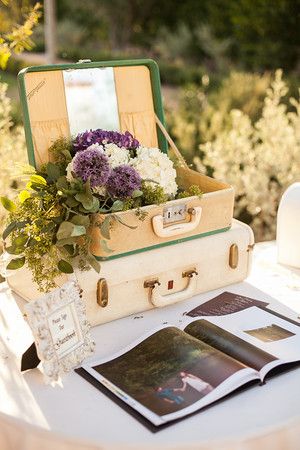 If you’re planning a holiday, you’ve probably given more thought to what to pack than how to prep your garden before you take off.
If you’re planning a holiday, you’ve probably given more thought to what to pack than how to prep your garden before you take off.
However, it would be real shame for all your hard work in the garden to go to waste when you return to dried up plants and drooping blooms.
We got in touch with John Pham from Lawnstreet for a few tips on how you can prep your garden to survive when you’re not there to tend to it every day.
Find the best spot
Container plantings and pots will need the most attention during holidays. If you’re gone just a few days, you can just move them out of the sun into a shady site, or even a cool garage. They’ll lose much less water there.
Container plantings and pots will need the most attention during holidays. If you’re gone just a few days, you can just move them out of the sun into a shady site, or even a cool garage. They’ll lose much less water there.
Cover all bases
If soil is showing in large containers, cover with an inch or two of mulch such as pine bark or cocoa shells. Or, if not too large, you can sink the pots up to their rims into a bed or pile of wood chips or bark, and water all well.
Plan ahead
If you know early in the season when planting, that you may be taking a holiday later, put into the potting mix some water absorbing gels. These especially are great in hanging baskets, even if you aren’t going on holiday. They absorb water, releasing it to the mix as it dries. Keep in mind too that clay pots will dry out much quicker than plastic ones. Another option is to plant into self-watering containers. These are especially popular with houseplants. They often consist of a pot with a false bottom, to which water is added, and that wicks up into the soil through a fabric of some sort.
If you know early in the season when planting, that you may be taking a holiday later, put into the potting mix some water absorbing gels. These especially are great in hanging baskets, even if you aren’t going on holiday. They absorb water, releasing it to the mix as it dries. Keep in mind too that clay pots will dry out much quicker than plastic ones. Another option is to plant into self-watering containers. These are especially popular with houseplants. They often consist of a pot with a false bottom, to which water is added, and that wicks up into the soil through a fabric of some sort.
Water well
In the garden, watering well before you leave may last a week, depending on the weather. It’s best to start watering early in the season, deeply and less often. This will “train” the plants to not need water daily, the roots going deeper and not growing just near the surface. If you have lots of plants and gardens, too many to all water if it doesn’t rain, just focus on the new plantings this year, vegetables, and more special (or expensive) trees and shrubs. Even a couple inches of organic mulch, such as bark or pine needles, and straw in the vegetable garden, will help conserve moisture and slow down weeds from coming up.
In the garden, watering well before you leave may last a week, depending on the weather. It’s best to start watering early in the season, deeply and less often. This will “train” the plants to not need water daily, the roots going deeper and not growing just near the surface. If you have lots of plants and gardens, too many to all water if it doesn’t rain, just focus on the new plantings this year, vegetables, and more special (or expensive) trees and shrubs. Even a couple inches of organic mulch, such as bark or pine needles, and straw in the vegetable garden, will help conserve moisture and slow down weeds from coming up.
Tree Removal
Plan and organise this well in advance of any break away as it tends to bring upheavel to your garden.
The advice from https://www.thelocaltreeexperts.com/ is to do it at least 6 months prior to your vacation.
Invest in a watering system
If you’ll be gone for longer periods, or holiday more often, you may want to invest in an automatic watering system. An inexpensive alternative are soaker hoses made of recycled materials. Water slowly seeps out of these hoses that you lay throughout the beds, or along garden rows under mulch. You can have a house sitter turn these on as directed or needed, or you can put these on timers. The timers are relatively inexpensive devices, found at many home and garden shops that you put on the faucet and then attach to the hose.
If you’ll be gone for longer periods, or holiday more often, you may want to invest in an automatic watering system. An inexpensive alternative are soaker hoses made of recycled materials. Water slowly seeps out of these hoses that you lay throughout the beds, or along garden rows under mulch. You can have a house sitter turn these on as directed or needed, or you can put these on timers. The timers are relatively inexpensive devices, found at many home and garden shops that you put on the faucet and then attach to the hose.
Get weeding
You’ll want to plan a few weeks out to make sure your beds are weeded, otherwise these will take up water your plants need, will create competitive stress for them, and may be hard to get under control once you’re home again. Then check plants a couple days before leaving to make sure no pests, and treat if so.
You’ll want to plan a few weeks out to make sure your beds are weeded, otherwise these will take up water your plants need, will create competitive stress for them, and may be hard to get under control once you’re home again. Then check plants a couple days before leaving to make sure no pests, and treat if so.
Mow the lawn
In addition to watering, you’ll want to make sure your lawn is mowed before leaving. This may last a week or 10 days, depending on weather. You don’t want to mow extra low, as this will only stress the grass. It is better to have it be high when you return, then mow once again and again lower in a few days.
In addition to watering, you’ll want to make sure your lawn is mowed before leaving. This may last a week or 10 days, depending on weather. You don’t want to mow extra low, as this will only stress the grass. It is better to have it be high when you return, then mow once again and again lower in a few days.
Look after your herbs
If you have herbs, pinch flowers off so new growth will develop. If they’re ready to harvest, do so and dry while you’re away. Pick any produce from the garden or fruits that are ripe, or that can continue to ripen once picked. Otherwise they can get too large, lose flavour, rot, fall off, and cause disease.
Don’t plant before you go
Don’t plant within a month or so before going on holiday, so you’ll be around to water and tend the plantings until they become somewhat established. Don’t fertilise annuals just before leaving, as this will just stimulate new growth that needs more water.
Don’t plant within a month or so before going on holiday, so you’ll be around to water and tend the plantings until they become somewhat established. Don’t fertilise annuals just before leaving, as this will just stimulate new growth that needs more water.
Image via Pinterest.






